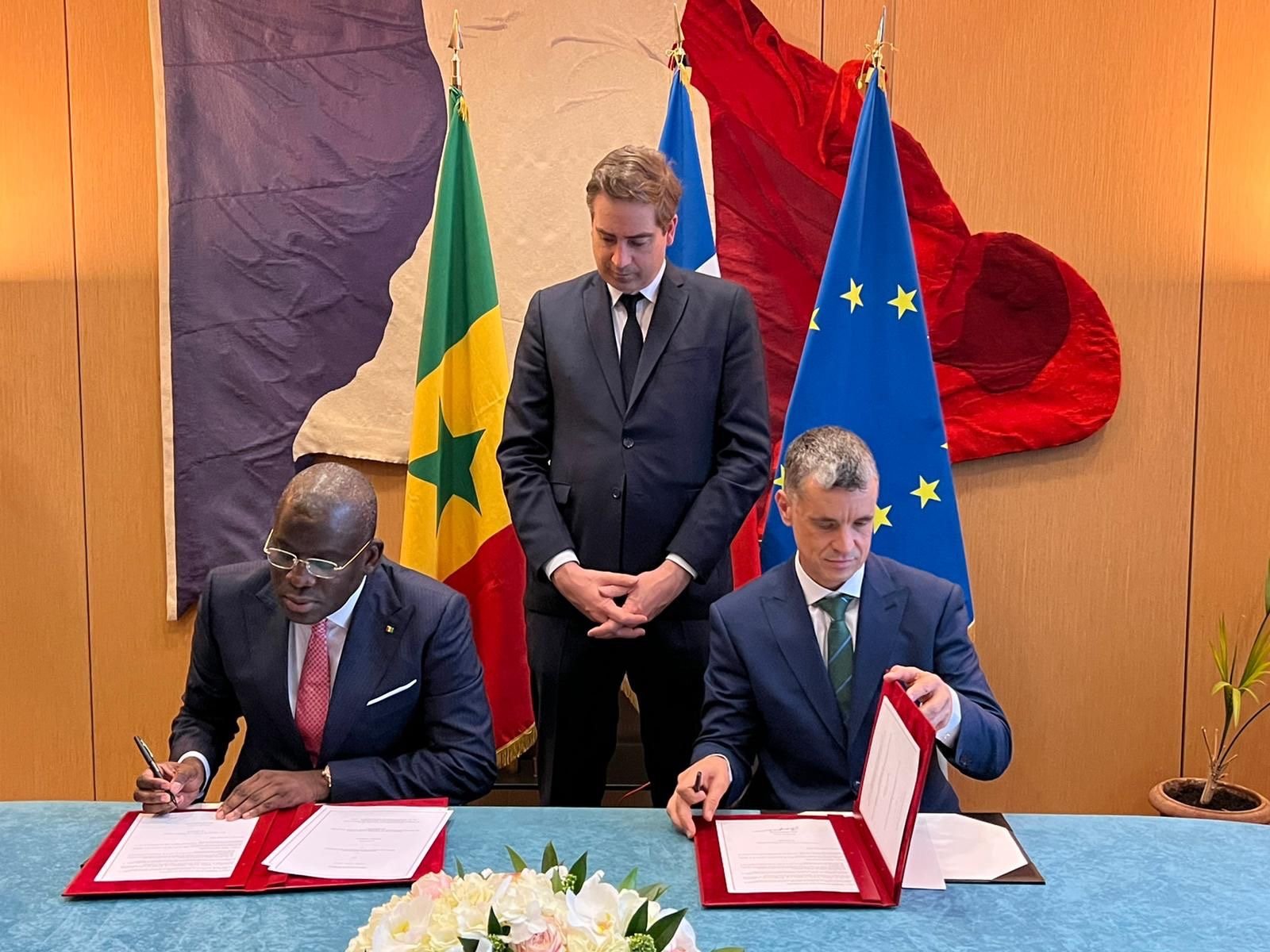Senegal will be the first country to benefit from AGORA-type local cultural infrastructures with the signing and launch, in December 2022, of the construction program and operation contract for 14 AGORA Cultural Centers.
A few months earlier, Winwin Africa, in cooperation with Senegalese authorities, had conducted feasibility studies to build 14 modular and complementary cultural facilities of the AGORA type in the heart of Senegal’s neighborhoods.
This initiative materialized in December 2022 with the signing of a public-private partnership between the Ministry of Culture and Historical Heritage of Senegal, represented by Prof. Aliou Sow, Minister of Culture, and Winwin Africa, represented by its President, Régis Charpentier.

This meeting took place at the Ministry of Europe and Foreign Affairs in Paris, in the presence of Mr. Olivier Becht, Minister Delegate for Foreign Trade, Attractiveness, and French Nationals Abroad, Mr. Pedro Novo, Executive Director in charge of Export at Bpifrance, Mr. Matthieu Gazu, Director of the Alamo subsidiary of the Duval Group, and Mr. Maxime Zeller, Managing Director of Winwin Africa.
As a reminder, the AGORA Culture project is a cultural program for youth, with social and economic objectives, located at the heart of neighborhoods. It is defined by three components:
- A neighborhood facility dedicated to cultural expression and exchanges, offering a neighborhood cinema, a stage for theater, stand-up comedy, concerts, exhibition spaces, and the possibility of hosting artist residencies.
- A space for social cohesion animated by local actors, cultural associations, and NGOs, around themes such as creation, social innovation, training, and sustainable development.
- A program developing income-generating activities for an autonomous and sustainable economic model.
The construction of these infrastructures will be carried out in accordance with sustainable development requirements through the use of bio-based materials, bioclimatic design to limit energy needs (natural ventilation of certain spaces and use of solar energy), management of drinking water and rainwater, as well as greening of reception areas.
